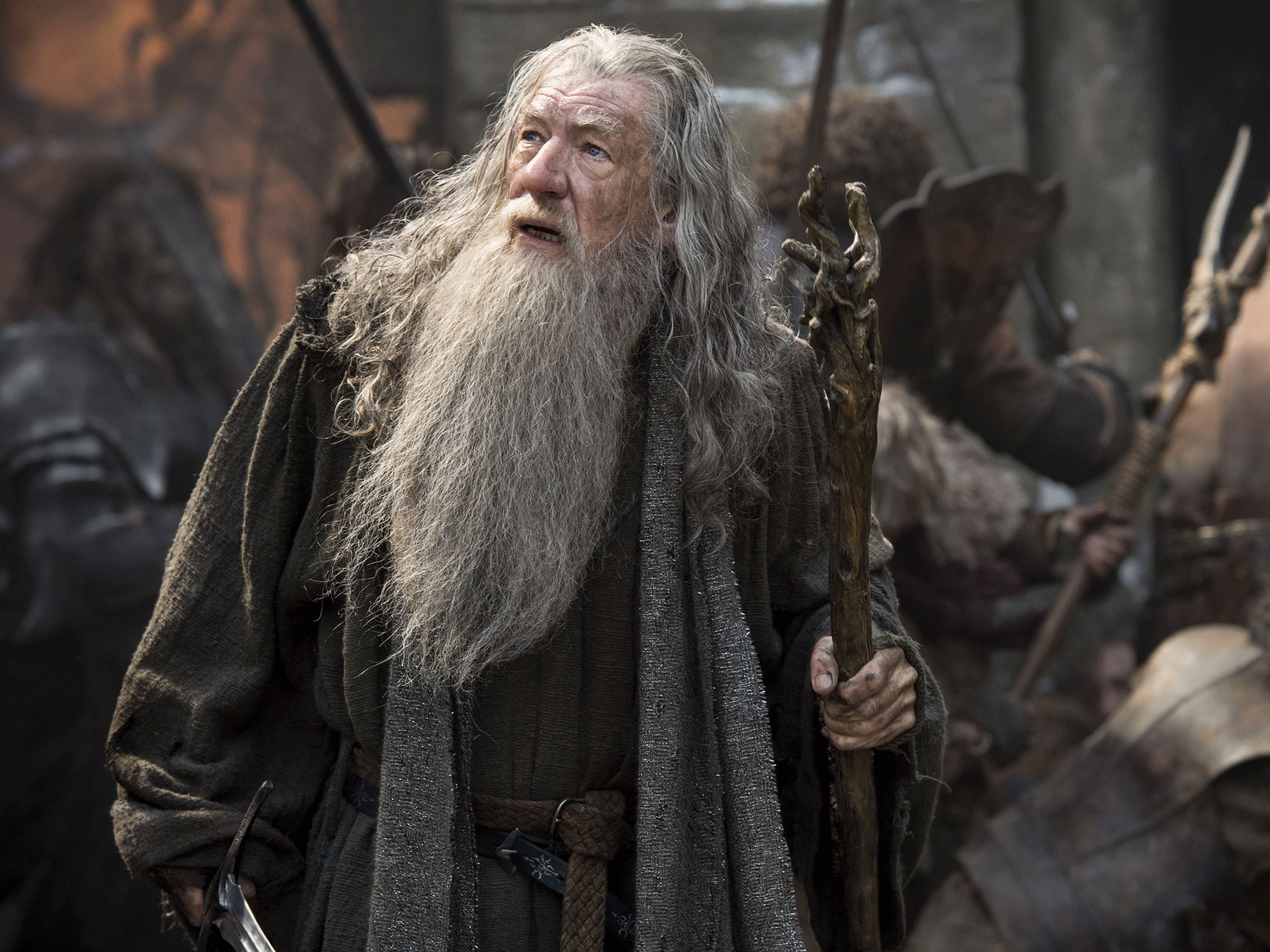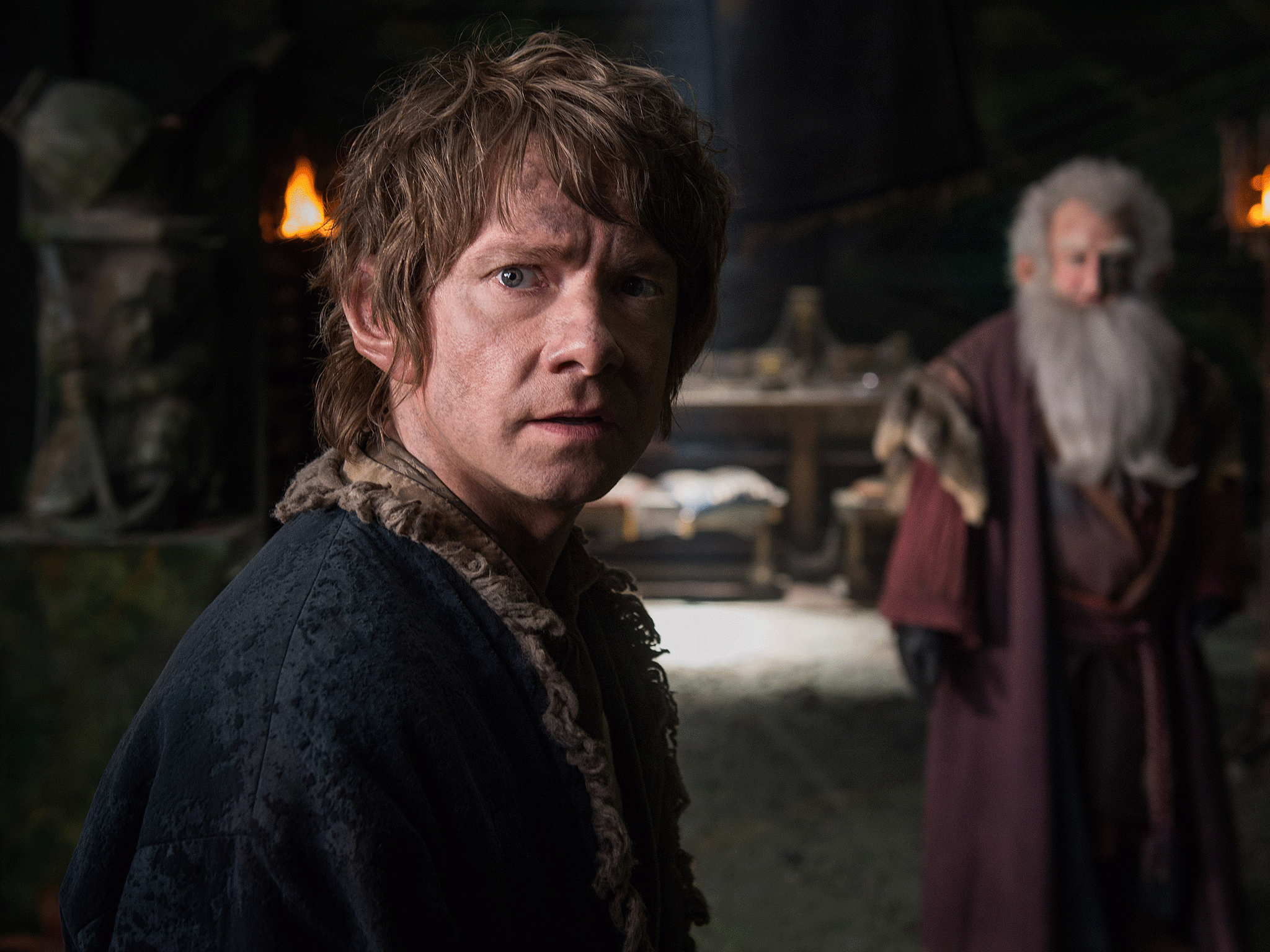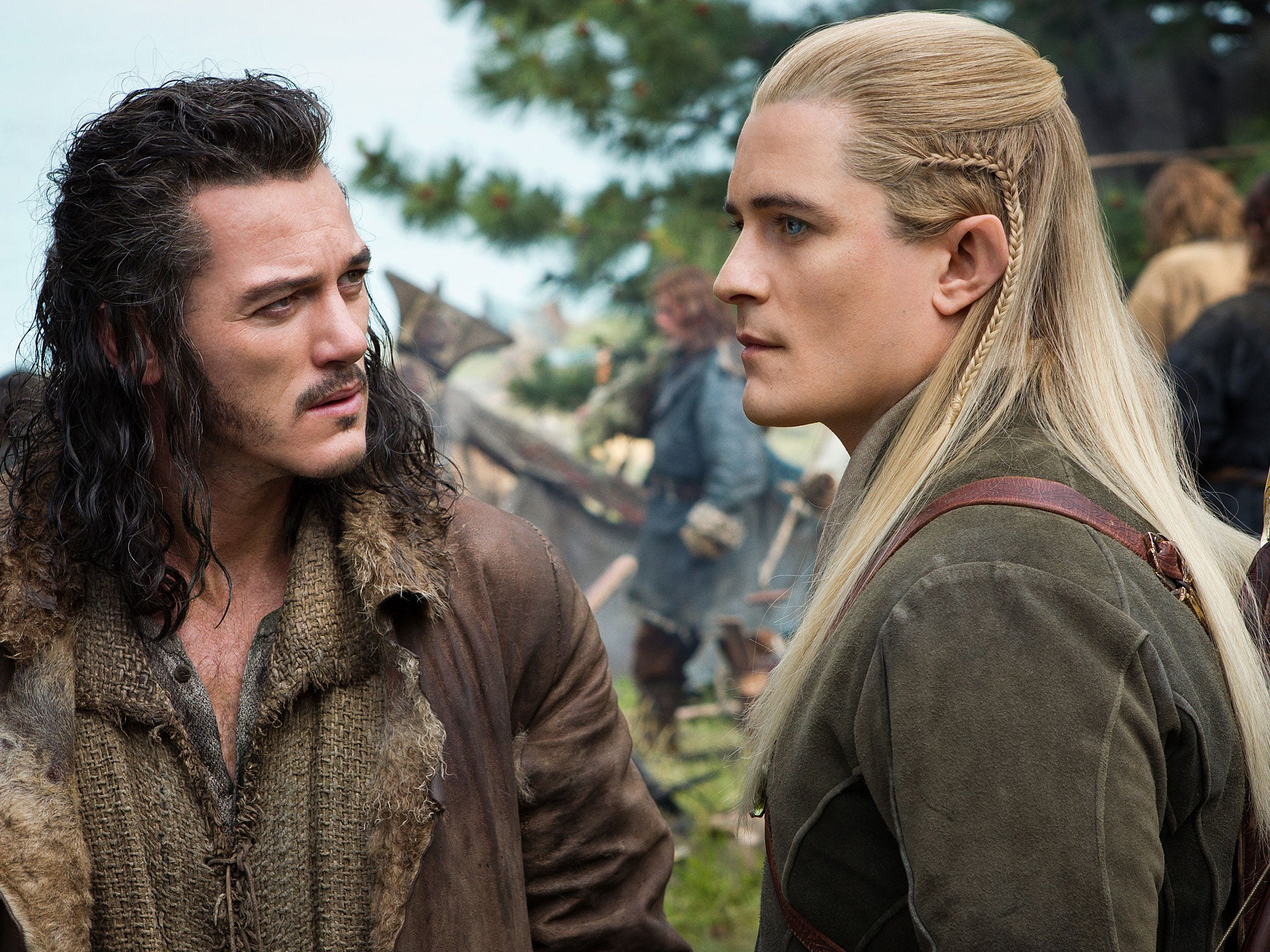The Hobbit: The Battle Of The Five Armies, film review: Jackson rounds off trilogy with a bang
(12A) Peter Jackson, 144 mins. Starring: Ian McKellen, Martin Freeman, Richard Armitage, Evangeline Lilly, Lee Pace, Luke Evans

Your support helps us to tell the story
From reproductive rights to climate change to Big Tech, The Independent is on the ground when the story is developing. Whether it's investigating the financials of Elon Musk's pro-Trump PAC or producing our latest documentary, 'The A Word', which shines a light on the American women fighting for reproductive rights, we know how important it is to parse out the facts from the messaging.
At such a critical moment in US history, we need reporters on the ground. Your donation allows us to keep sending journalists to speak to both sides of the story.
The Independent is trusted by Americans across the entire political spectrum. And unlike many other quality news outlets, we choose not to lock Americans out of our reporting and analysis with paywalls. We believe quality journalism should be available to everyone, paid for by those who can afford it.
Your support makes all the difference.The Hobbit trilogy began in faltering fashion with An Unexpected Journey (2012). There was a dispiriting sense that director Peter Jackson was spending far too long getting all his dwarves in a row and setting up the furniture for the rest of the series. The film was slow moving and strangely tentative. Jackson’s decision to shoot at 48 frames a second seemed to backfire. The image quality felt ersatz, almost too clean.
Last year’s The Desolation of Smaug was a definite improvement. In spite of the unwieldy plot and multiple characters, the film was building up a narrative momentum that its predecessor had lacked, with enough chases and battles to sweep us up in the excitement of it all.
Now, the series ends in truly spectacular fashion – and with Jackson finally at full throttle. It remains questionable, though, whether J.R.R. Tolkien’s shortish novel needed to be brought to the screen in three separate movies. Like the visitors to Erebor seduced by dragon’s gold, the producers of the series seem to be suffering from their own version of dragon-sickness. They have been a little too bewitched by the sheer box-office potential of their franchise. Nonetheless, The Battle of the Five Armies marks a very stirring conclusion to Jackson’s near two-decade engagement with Tolkien’s Middle Earth.
The film plays like an extended final reel to a conventional movie. Jackson doesn’t bother re-capping on the plot for the sake of newcomers or for the sake of anyone who may have forgotten where he left us last year. We are plunged straight into the action. The fire-breathing and supercilious dragon Smaug (voiced by Benedict Cumberbatch) is laying waste to Lake-town. Buildings are on fire. The townsfolk are fleeing. Bard the Bowman (Luke Evans) is on a tower, shooting arrows at the vengeful worm. These just bounce off the dragon’s scales. It’s a rousing overture, but what is impressive is how Jackson tempers the scenes of death and destruction with moments of comedy and pathos. We see the ermine-clad Master of Laketown (Stephen Fry) still cutting an absurd and conceited figure as he tries to make his escape. Bard’s son Bail (John Bell) is desperately trying to help his father.
For all the brilliance of the visual effects, this set-piece, like many others in the movie, has the flavour of those slightly creaky fantasy sequences in matinee movies with creatures animated by the late Ray Harryhausen. That is part of what makes the film special – its director’s child-like belief in cinema’s ability to transport us to new fantasy worlds.

The look of The Battle of the Five Armies is far darker than that of the previous two films. It’s as if we are in the world of Fritz Lang’s silent fantasy epic Die Nibelungen. Most of the action unfolds in the shadow of “the Lonely Mountain”. The dwarves, led by Thorin Oakenshield (Richard Armitage), are holed up in the halls of Erebor. Thorin is so seduced by the gold and so desperate to find the magical “Arkenstone” that he has completely lost his moral bearings. Increasingly cruel and bad-tempered, he neglects his own vows.
Early on in the film, we are also taken back to the ruined fortress where Gandalf the Grey (Ian McKellen) is held prisoner. Old and weak, he seems powerless in the face of his enemy Sauron, but the old friends Saruman (Christopher Lee) and Elf Queen Galadriel (Cate Blanchett) are on hand to protect him. Their scene together plays like something out of Terence Fisher’s Hammer classic The Devil Rides Out (1968), in which Lee and his associates spend a long, dark night of the soul trying to protect themselves from Satanic attack. Not even the arrival of a sleigh pulled by gigantic rabbits lessens the tension.
As dwarves, humans and elves bicker and make threats, a horde of murderous orcs is converging on Erebor, determined to kill them all. Amid all the mayhem, Bilbo Baggins (Martin Freeman) provides a still, small voice of calm. He has a Chaplinesque quality. He is the everyman, plucked away from home at the start of the trilogy and relying on his wits to stay alive. While other characters declaim their dialogue in portentous fashion, he is far more down to earth.

We eventually realise that all the sub-plots about the feuding between dwarves and elves, the dragon’s gold and the Arkenstone itself are really just distractions. The main purpose is to round off the series in the most spectacular way possible. Jackson is upping and upping the ante. The devastation of Lake-town in the dragon’s fire storm is just the opening gambit – and Jackson keeps on escalating the action from there. Howard Shore’s Wagner-esque music adds to the brooding atmosphere. As orcs and dwarves cut lumps out of each other, there is as much carnage here as was found all those years ago in Jackson’s low-budget splatter movie Bad Taste (1987). As a director, Jackson relishes orchestrating mayhem. He stages the set-pieces with tremendous flair, but with enough humour and irony to stop the film seeming merely overblown.
In its sweep and brio, The Battle of the Five Armies makes up for the tentative beginnings of the trilogy. This is the pay-off. It’s a tremendous cinematic spectacle. Seeing it, you understand why Game of Thrones creator George R.R. Martin is so envious of the financial resources at Jackson’s disposal – resources that not even the most expensive TV series can come close to matching; resources that Jackson knows just how to deploy. All of those years after he first started making Lord of the Rings, the director still retains his sense of wonder about Tolkien’s universe. That’s why, in spite of all the longueurs and mis-steps along the way, he is able to round off The Hobbit with such a big bang.
Join our commenting forum
Join thought-provoking conversations, follow other Independent readers and see their replies
Comments